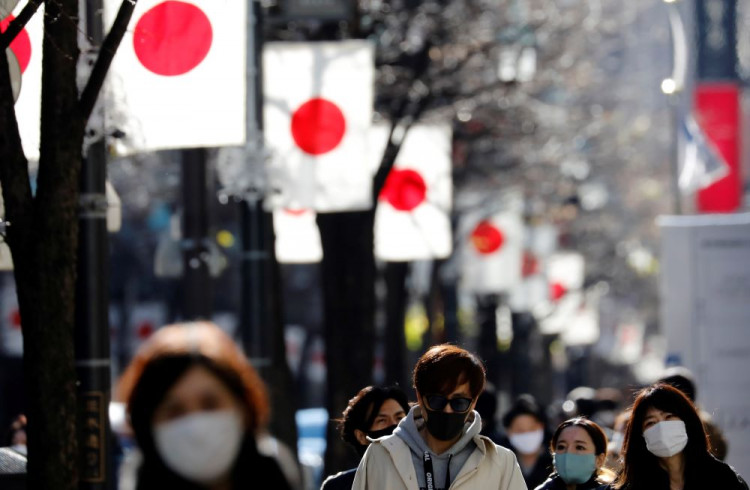Confidence among Japan's large manufacturers rose into the black for the first time since 2019 with an increase to five points in the first quarter from minus 10 points in the fourth quarter of 2020, according to the Bank of Japan's tankan survey Thursday.
The result beat an expectation for a flat reading. The survey was conducted between Feb. 25 and March 31.
These big companies said they now planned to increase capital expenditure during the rest of the year and the bank said this suggested the economy was benefiting from a solid recovery in international demand as a result of an easing of the virus pandemic thanks to a steady increase in the number of people being vaccinated.
Big companies expect to boost capital expenditure by 3.0% in the year that began in April - more than market forecasts for a 1.4% gain. That would follow a 3.8% cut in spending plans for the year that ended in March. Capital spending plans among companies of all sizes and sectors rose 0.5% in fiscal 2021 - the first positive projection made at the start of a business year since relevant data became available in 1984.
One economist said the capital expenditure prediction by big companies "was much stronger than (a) median of a 1.4% year-over-year fall...and supports (the) view that business investment will recover strongly in 2021. All told, the survey bolsters (the) view that the economy will recover faster than most expect. Gross domestic product will be back at pre-virus levels in the third quarter this year and at its pre-virus path in early 2022."
Confidence among big nonmanufacturers also recovered from three months ago, the central bank survey showed Thursday.
There were concerns, however, the rebound from the pandemic's initial hit may have peaked. Big manufacturers and nonmanufacturers both expect business conditions to stay largely flat three months ahead, the tankan showed.
"The results underline the Bank of Japan's view that the economy continues to recover moderately," said Yoshiki Shinke, chief economist at Dai-ichi Life Research Institute.
"It turns out that renewed state of emergency curbs have had limited impact on business sentiment thanks to solid exports and goods demand," he said according to Reuters.
Some retailers were seeing signs of weakening demand for stay-home goods like groceries and household electronics, a bank official said after the data was released. "There were some automakers fretting about the impact chip shortages could have on their output," the official said.
"It's unavoidable that output will drop. It's a risk factor that is not reflected in today's tankan," he said.
Meanwhile, Capital Economics' Japan economist Tom Learmouth said the positive tankan result "supports our view that the economy's recovery from the pandemic will gather pace again soon. And firms' upbeat capital spending plans for the upcoming fiscal year bolster our view that business investment will continue to rebound fast."
" 'Employment conditions' - which fall when more firms are reporting staff shortages - fell from minus 10 to minus 12, supporting our view that the labor market will gradually tighten. That said, on past form it's consistent with an employment rate of 3.6%," he said.






